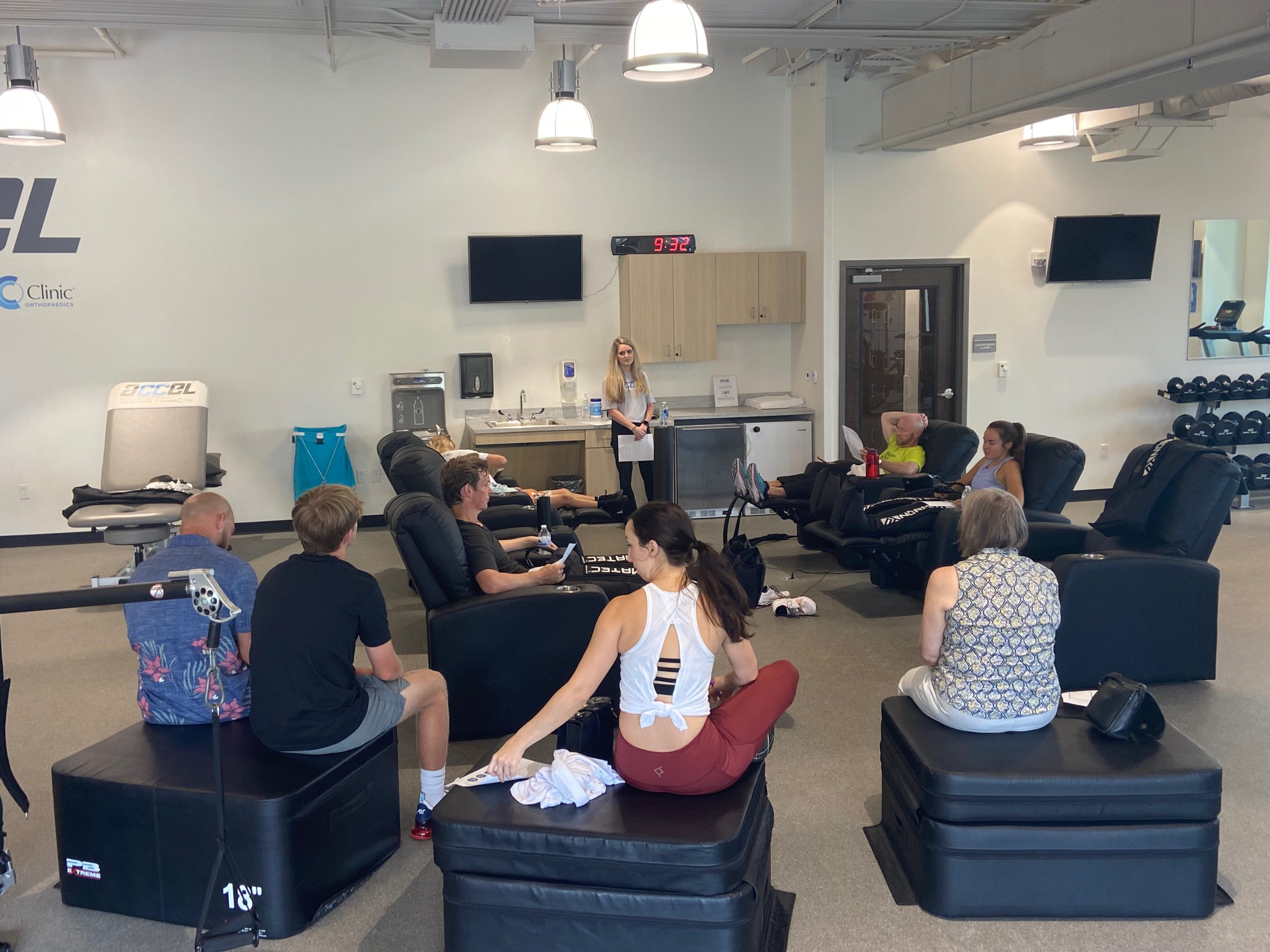5 Keys to Performance Nutrition

Our team is made up of a variety of skilled professionals who help make it possible to live out our mission of being a holistic, one-stop-shop for performance health and wellness. We regularly invite our staff to share their skills with the wider community through events online and at our facility. Recently, our on-staff performance dietitian, Alisha Parker, led Accel members and guests through an educational talk about the 5 Keys to Performance Nutrition.
The five principles she covered include foundation, mindset, goal setting, sustainability and flexibility. Let’s dig into each of these areas to learn more about their importance as it relates to performance nutrition.
Foundation
Building a solid foundation helps you create a healthy perspective on performance nutrition. We oftentimes look for quick fixes or plans to follow that will give us our desired results. Whether that is losing weight, gaining muscle, toning up, etc. The truth is, our bodies are complex, and fad diets aren’t the solution for creating meaningful and sustainable change. Popular diets like Keto, intermittent fasting and the 5:2 diet, require you to follow a specific set of rules that are not sustainable long-term. These diets shouldn’t be the baseline for fueling our bodies.
Instead, we should try to fuel our bodies at many points throughout our day to make sure we’re getting the nutrition we need. A good place to start could look something like this:
Break-the-fast: Eat within one hour of waking up in the morning.
Fuel up: Eat a meal every 3-4 hours and aim to have 2-3 colors on your plate.
Snacks: Meals should include carbs, protein, fats, fruits and/or vegetables. Snacks should include any of those two components for sustainable energy.
Hydrate: Aim to drink a minimum of half your body weight in fluid ounces per day as a starting hydration plan.
Recover: Plan to consume a post-workout snack or meal within 45 minutes of training.
Mindset
In the context of performance nutrition, your mindset is about your “why.” What’s your “why” for wanting to focus on nutrition? What are you training for? Maybe it’s to have more energy so you can keep up with your kids or grandkids, or maybe you want to improve speed, agility, mechanics or recovery. Knowing your “why” allows you to take an introspective look at what your body can do when you prioritize fueling it well.
Goal Setting
When setting nutrition goals, they should be specific, measurable, attainable, relevant and timely. To find a realistic goal that you can meet in this season, try writing down two action steps that you can take this week to implement that goal. Make one of your action steps nutrition-related and the other non-nutrition-related.
Sustainability
Consistency is key. Training can become tiresome, and you might hit a wall. If this happens, who is there to support you? Examine where you can implement self-care practices and who you can surround yourself with to make sure your goals are staying sustainable.
Flexibility
Flexibility is about practicing intuitive eating and letting your natural hunger cues guide when and what you eat. A few practice tips to keep in mind:
Honor your hunger – Fight appetite suppression with pre-emptive eating. Post-exercise, focus on rehydration and refueling with smoothies, an acai bowl, etc.
Peace with food – All foods fit…even into performance nutrition.
Exercising and knowing the difference – Athletes fuel and train. They do not diet and exercise. Ask yourself what it is you enjoy about training and competition. What does it look like to transition from being a collegiate athlete to someone who enjoys movement?
You don’t have to be an elite athlete to prioritize performance nutrition. Understanding what your body needs to be properly fueled is important to your daily life. Whether you’re the parent of a young athlete or trying to play a collegiate sport, get in touch with our team to set up a consultation.

Recent Comments